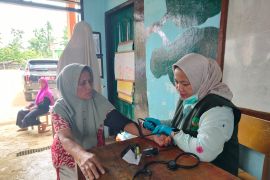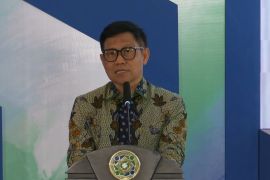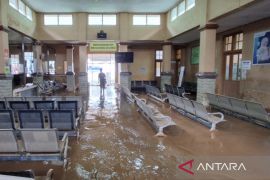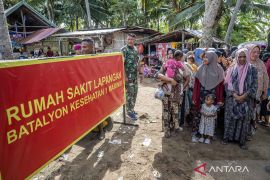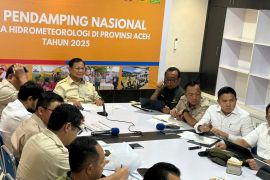The ministry's national malaria program manager, Helen Prameswari, said that despite its success in controlling malaria transmission at IKN, her party, along with the IKN Authority and the local government, is continuing to pay attention to efforts to mitigate the risk of malaria.
"Including through the formation of the malaria-free task force last May, which targets the local population of construction workers, migrant workers, and forestry workers," she informed in a statement released by her office on Wednesday.
"Cross-disciplinary and cross-sector collaboration is also needed, from the center to the regions," she added.
Prameswari informed that the study was initiated by an associate professor from Monash University Indonesia, Dr. Henry Surendra; a senior researcher from the Oxford University Clinical Research Unit. Dr. Iqbal Elyazar; and an associate professor from Saw Swee Hock School of Public Health at the National University of Singapore, Dr. Kimberly Fornace.
Several stakeholders at the Ministry of Health, WHO, and UNICEF also joined in the research.
She added that the study was published in the Nature Communications journal.
In the same statement, Surendra said that research is recommended to optimize efforts for handling malaria and other vector-borne diseases, including to understand environmental changes, vector behavior, and human mobility contribution to the spread of disease.
"With technological advances, such as satellite data and AI tools, there is the potential to monitor changes in real time and improve spatial plans to suppress health risks in urban development such as IKN," he added.
Given the scale of the IKN development and its potential impacts across East Kalimantan, relevant stakeholders should establish cross-border collaboration with surrounding provinces and neighboring countries, he continued.
Furthermore, Surendra said that a multidisciplinary approach will ensure that health, ecological, and social challenges are addressed comprehensively.
Meanwhile, the vice president of research at Monash University Indonesia, Alex Lechner, said that his party is committed to actively integrating urban design with ecological and health considerations to promote resilient and sustainable communities.
Rapid urbanization and climate change bring challenges to sustainable development in malaria-prone areas such as Indonesia, he noted.
Collaborative research and innovative solutions are necessary to address the health and environmental impacts of large-scale infrastructure projects such as the IKN, he added.
Related news: Govt presses for establishing research labs in malaria-endemic regions
Related news: BRIN builds genomics research center for life, environmental science
Translator: Mecca Yumna, Resinta Sulistiyandari
Editor: Rahmad Nasution
Copyright © ANTARA 2024


